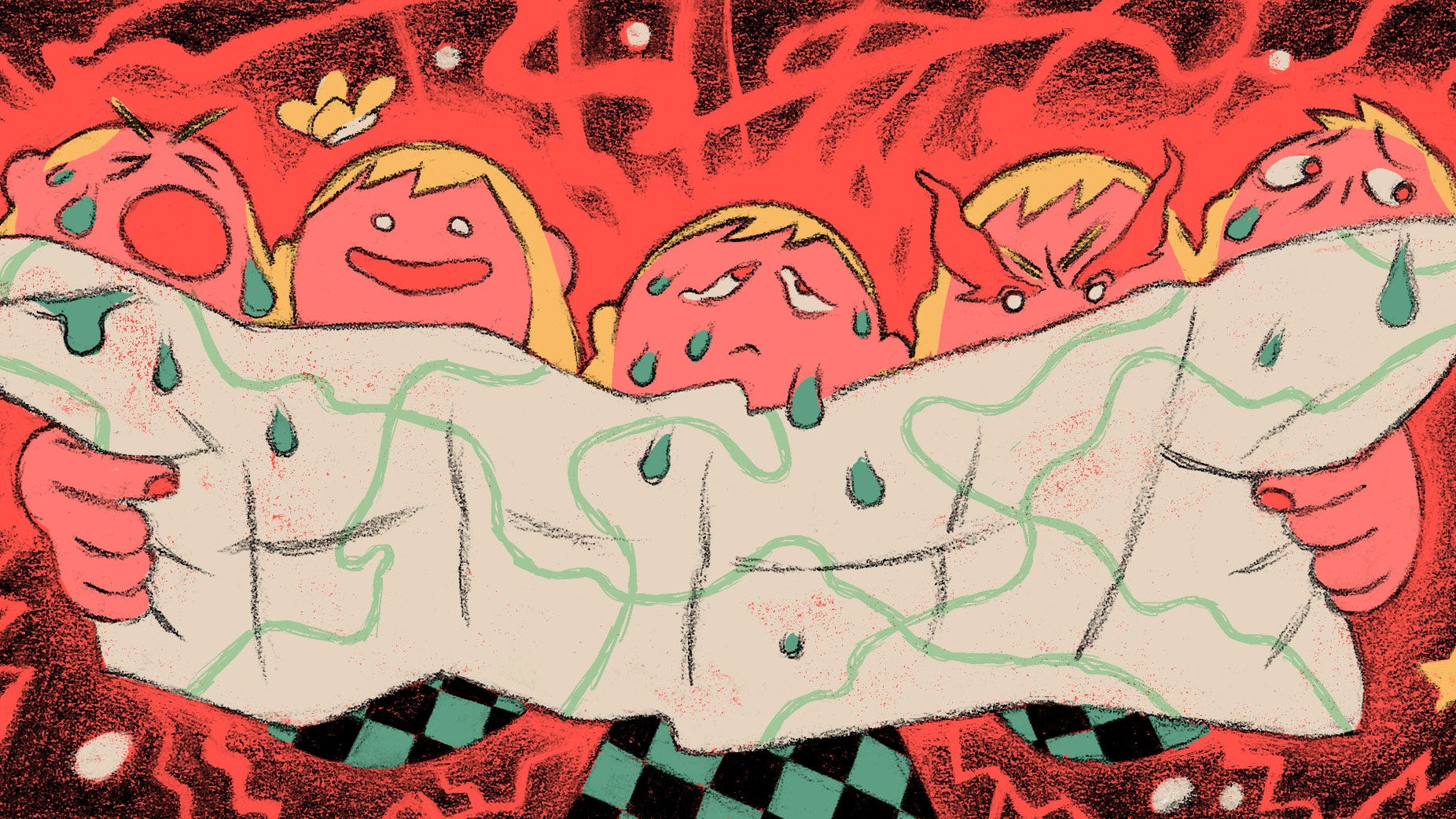How to Survive a Business Trip When You Have Multiple Personalities
What might seem like an easy task to most can be a Herculean challenge for someone with dissociative identity disorder.
The phone rang in my cubicle at the insurance company. It was Ron, from the Boston office. A brokerage north of Albany wanted to sell our policies; could I get the PowerBuilder system installed on their computers and go up for a two-day training session?
“Sure,” I said, pleased. People invariably complimented me on my user manuals and classes, because I explained things clearly. That made me feel good.
But as soon as we hung up, his words imparted a different feeling. North of Albany. A three-to-four-hour drive from Manhattan. Two-day training session. A hotel. My eyes darted about, then latched onto the IN-BOX, OUT-BOX signs on the stacked metal trays as if to a life raft. Somehow, I got myself to the ladies’ room.
Barricaded in a stall, I started to shake and moan. I stifled the moan but allowed the shakes to continue. After what was probably only five minutes, they wound down. The terror was gone too.
Walking back to my cubicle, I realized this was going…
Keep reading with a 7-day free trial
Subscribe to Narratively to keep reading this post and get 7 days of free access to the full post archives.




